GENEVA (25 June 2020) – UN human rights experts* today urged the Democratic People’s Republic of Korea (DPRK) to repatriate hundreds of people abducted during and after the Korean War and end decades of anguish for the families of those taken.
“Despite the return of prisoners of war and displaced civilians being enshrined in the Armistice Agreement, the DPRK has consistently refused to repatriate them or even to allow relatives to communicate freely with their loved ones,” the independent experts said on the 70th anniversary of the outbreak of war on 25 June, 1950. “Instead, in the decades following the end of the conflict, the DPRK abducted hundreds of other individuals, including Korean, Japanese and other nationals.
“With the relatives getting older, it should not be postponed any longer – now is the time for the DPRK to step forward,” said the experts, calling on the DPRK to urgently provide information on the status of all abductees, to allow them to freely communicate with their relatives and to repatriate them as soon as possible.
The Working Group on Enforced and Involuntary Disappearances has 316 outstanding cases of enforced disappearances in the DPRK registered in its database. It has previously called for the Security Council to consider referring the situation to the International Criminal Court.
In 2014, a Commission of Inquiry found that the DPRK authorities had committed crimes against humanity against victims of international abduction and other persons denied repatriation.
“It is high time that the DPRK start genuine cooperation to clarify the fate and whereabouts of all abductees and disappearances cases,” the experts said.
The experts have written to the Government of the DPRK to raise their concerns about the issue.
ENDS
*The UN experts: Members of the Working Group on Enforced or Involuntary Disappearances - Mr. Luciano Hazan (Chair), Mr. Tae-Ung Baik (Vice Chair), Mr. Bernard Duhaime, Ms. Houria Es-Slami, and Mr. Henrikas Mickevičius; Ms. Agnès Callamard, Special Rapporteur on extrajudicial, summary or arbitrary executions; Mr. Nils Melzer, Special Rapporteur on Torture and Other Cruel, Inhuman or Degrading Treatment or Punishment; Mr. Tomoya Obokata, Special Rapporteur on contemporary forms of slavery, including its causes and consequences.
The Special Rapporteurs are part of what is known as the Special Procedures of the Human Rights Council. Special Procedures, the largest body of independent experts in the UN Human Rights system, is the general name of the Council's independent fact-finding and monitoring mechanisms that address either specific country situations or thematic issues in all parts of the world. Special Procedures experts work on a voluntary basis; they are not UN staff and do not receive a salary for their work. They are independent from any government or organization and serve in their individual capacity.
For further inquiries and media requests please contact: Gabriela Guzman (+41 22 928 9452 / gguzman@ohchr.org)
For media enquiries regarding other UN independent experts, please contact Renato de Souza (+41 22 928 9855 / rrosariodesouza@ohchr.org) and John Newland (mediaconsultant2@ohchr.org)
Follow news related to the UN’s independent human rights experts on Twitter @UN_SPExperts.
Concerned about the world we live in?
Then STAND UP for someone’s rights today.
#Standup4humanrights
and visit the web page at http://www.standup4humanrights.org
